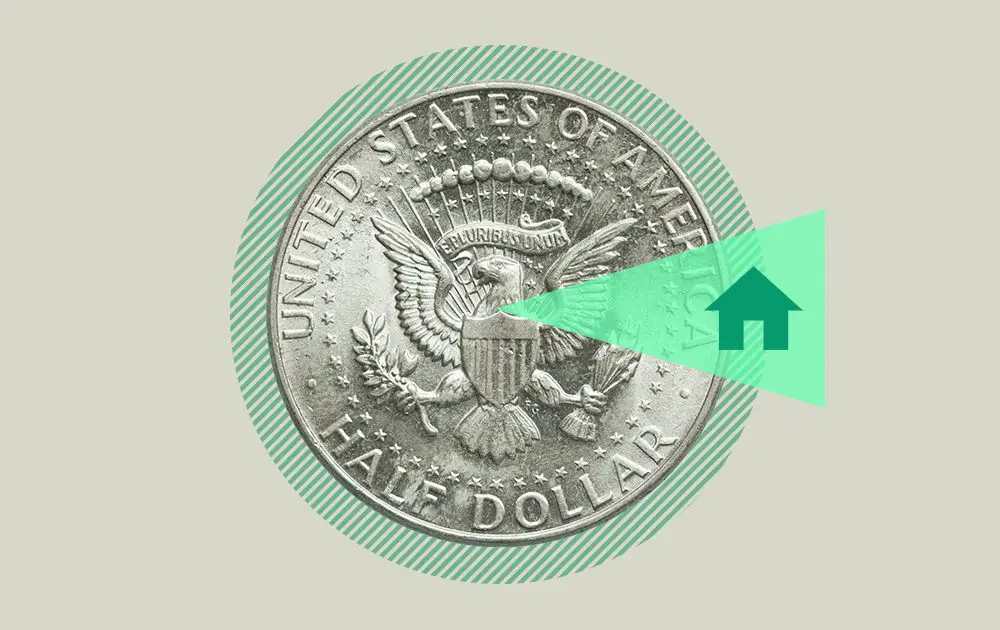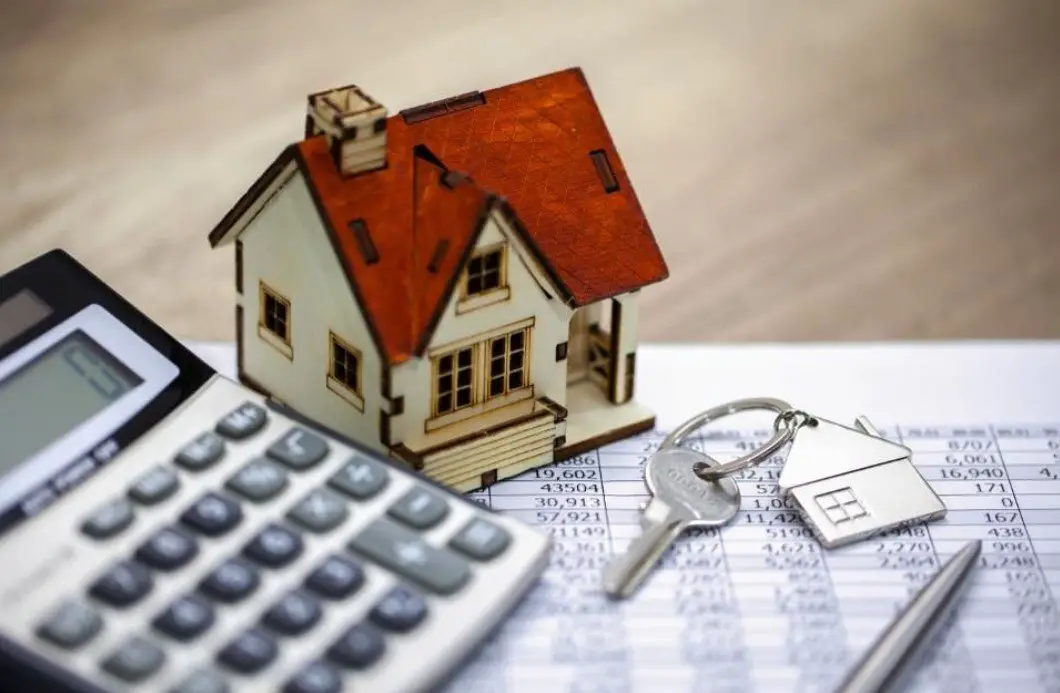How To Calculate Debt
Calculating your debt-to-income ratio isnât difficult. The first thing you need to do is determine your gross monthly incomeyour income before taxes and other expenses are deducted. If you are married and will be applying for the home loan together, you should add together both your incomes.
Next, take the total and multiply it first by 0.28, and then by 0.36, or 0.43 if youâre angling for a qualified mortgage. For example, if you and your partner have a combined gross monthly income of $7,000, it would be broken down like this:
- $7,000 x 0.28 = $1,960
- $7,000 x 0.36 = $2,520
- $7,000 x 0.43 = $3,010
This means that your mortgage, taxes, and insurance payments shouldnt exceed $1,960 per month, and your total monthly debt paymentsincluding that $1,960should be no more than $2,520.
Unfortunately, the rule says to keep your monthly payments under both of these limits. So the next step is to see what effect your other debts have. Add up your total monthly non-mortgage debt payments, such as credit card, student loan, or car loan payments.
For this example, lets assume your monthly debt payments come to a total of $950. Subtract that amount from $2,520, and youll see that your mortgage payment shouldnt exceed $1,570.
Also Check: Chase Mortgage Recast Fee
Finding The Right Lender
One place to start is with , a site that allows you to get quotes from three lenders in only three minutes. Theres no obligation, but if you see a rate you like for your mortgage or refinancing your mortgage, you can progress to the next step of the application process. Everything is handled through the website, including uploading documents. If you want to speak to a loan officer, you can, of course, but it isnt necessary.
As you shop for a lender, remember that every dollar counts. Youre committing to a monthly mortgage payment based on the rate you choose at the very start. Even small savings on your interest rate will add up over the years youre in your house.
is another great place to get started since they allow you to shop and compare multiple rates and quotes with minimal information, all in one place. Youll input the amount of the loan, your down payment, state, mortgage product type, and your credit score to get mortgage quotes from multiple lenders at once.
In the market for a house sometime soon? Use our resources to target your searchand know well in advance what you can afford:
The Bottom Line: How Much Home Can You Afford
So, what percentage of your income should go toward your mortgage? The answer will vary depending on your income and how much debt you have. But your income is only one of the many factors that determine how much home you can afford. Lenders look at everything from your credit score to your liquid assets when they decide how much to offer you.
To learn more about how much of a mortgage loan you can afford to borrow, check out our home affordability calculator. If youre ready to get started, you can apply online or give us a call at 452-0335.
Read Also: Recasting Mortgage Chase
First: What Is A Mortgage Payment
Mortgage payments are the amount you pay lenders for the loan on your home or property, including principal and interest. Sometimes, these payments may also include property or real estate taxes, which increase the amount you pay. Typically, a mortgage payment goes toward your principal, interest, taxes and insurance.
Many homeowners make payments once a month. But there are other options, such as a twice a month or every two weeks.
Increase Your Credit Score

The higher your credit score, the greater your chances are of getting a lower interest rate. To increase your credit score, pay your bills on time, pay off your debt and keep your overall balance low on each of your credit accounts. Don’t close unused accounts as this can negatively impact your credit score.
Read Also: Can You Get Preapproved For A Mortgage Without Hurting Your Credit
Take A Longer Mortgage Term
The longer your mortgage term, the lower your monthly payment. If you take a longer term, you spread your payments over a larger number of months and years, which reduces the amount youll owe each month. While taking a longer term will increase the amount you pay in interest over time, it can free up more cash to keep your DTI low.
Will I Be Able To Afford To Pay My Mortgage And Other Household Bills
Once you have decided the rough size of the mortgage you are going for, you should find out what the rough monthly costs would be, which will depend on the type of mortgage. Its important to ask yourself:
- Is the monthly mortgage a payment you can easily afford? A good rule of thumb is that no more than 35 per cent of post-tax income should go on mortgage payments.
- Will the mortgage be more or less than your current rent? If it you are struggling to pay your rent, and the mortgage is more think again
- Will there be bills such as council tax, water or insurance that you are currently not paying? These can add up to thousands of pounds a year
- What happens if interest rates go up, by 1, 2 or 3%? You need to stress test the mortgage for different scenarios. If you cant afford an increase in interest rates, you need to get a fixed rate mortgage, which will normally increase your monthly mortgage costs
- What happens if you lose your job, or suffer a fall in income because you have children and go on maternity leave? If you are planning kids, you cant plan on the basis of dual-income-no-kids lifestyle
- Can you cover the basic maintenance costs of a house? Many new homeowners struggle to pay the always surprisingly large wear and repair costs that go with owning a home
Read Also: What Does Gmfs Mortgage Stand For
Working Out The Size Of Your Deposit
To understand how much you can afford to spend on buying a home, the first step is to draw up your overall budget and understand how much money you have at your disposal to pay for everything. This will depend on the capital or savings you have at your disposal, and how much you can borrow against the property as a mortgage given your income and the size of your deposit.
How Much Can I Afford To Borrow For A Mortgage
Find out how much you can afford to borrow for a mortgage and how much house you can afford without over-stretching yourself or committing to repayments that you cant meet.
When buying a home, often the first step is understanding how much you can afford to borrow for a mortgage. Most people want to buy as much house as they can afford, without being overstretched or with too little money to pay the monthly bills.
Also Check: Chase Mortgage Recast
Determine How Much Home You Can Afford
First, you need to determine how much of your monthly income you can spend on housing. You need to remember to leave yourself a reasonable cushion for savings, insurance, taxes and other expenses.
One good way to begin is by analyzing your debt-to-income ratio. Your DTI is a numerical representation of how much you spend on recurring debts per month. Lenders look at your DTI when they consider your mortgage application to determine if you can afford to take on more debt. Your DTI can also help you determine if you should be renting or buying.
That Makes Sense I Think My Credit Score Is In Good Shape Thankfully Is There Anything Else That Happens Before I Get The Mortgage
As far as the lenders work goes, not really. When determining the answer to How much mortgage can I afford?, the lender can tell you what theyre willing to give you, but it is very important that you take stock of your current situation and assess your future before committing to a loan. In other words, were back to the question of what size debt are you comfortable taking on.
Don’t Miss: Rocket Mortgage Requirements
Buy A Starter House Instead Of A Forever Home
In some cases, your budget might not be able to support your forever home dreams right now. And thats OK! Instead of hunting in vain for a forever home that checks all of your boxes including your budget consider buying a starter home.
A starter home may be a bit smaller, older and closer to an areas urban center than your dream home. But choosing to move forward with a starter home means that youll get into a home sooner and start putting money toward owning a property each month.
Once you, and your finances, are ready for your forever home, youll have plenty of options for your starter home. You could convert it into your first rental property to produce an income while upgrading your home. Or you could sell the starter home and funnel any proceeds into the equity of your next home.
Tips For Lowering Your Monthly Payment

Theres plenty you can do in the months leading up to a mortgage application to drive down your mortgage rate and thus your monthly payments:
Start off with baby steps. You may not get to be a lenders ideal borrower overnight but most of us can make ourselves a better bet quite quickly.
Peter Warden
MyMortgageInsider.com Contributor
Also Check: Rocket Mortgage Vs Bank
First: Determine How Much House
Using a factor of your household income, you can quickly gauge how much house you can afford. The total house value should be a maximum of 3 to 5 times your total household income, depending on how much debt you currently have.
- If you are completely debt free, congratulationsyou can consider houses that are up to 5 times your total household income.
- If less than 20% of your income goes to pay down debt, a home that is around 4 times your income may be suitable.
- If more than 20% of your monthly income goes to pay down existing debts in the household, dial the purchase price to 3 times.
One of the major factors that determines how much house you can afford is your debt-to-income ratiothat is, your monthly debt obligations divided by your monthly income. Generally, lenders like to keep that ratio around 36%42%. If you have no preexisting debt, a lender might approve a loan that would bring your debt-to-income ratio up to 42%.
We assume 36% as the baseline maximum debt-to-income ratio you can have in the analysis. Because both your existing debts and your future mortgage payments are components of your household debts, the sum of both should not exceed this 36%. Using this metric, we can solve for the suitable home price so that your household has a healthy, manageable debt-to-income ratio.
Try this simple calculator to find out how much house you can afford.
Dont Forget To Budget For All Mortgage Costs
A mortgage is more than just a monthly mortgage payment. There are property taxes, mortgage insurance, homeowners insurance, and HOA fees.
Make sure you are using the total monthly payment when figuring out your debt-to-income ratio.
Use our home affordability calculator to see how much house you can afford.
Don’t Miss: Reverse Mortgage Manufactured Home
How Will My Debt
When you apply for a mortgage, lenders usually look at your debt-to-income ratio your total monthly debt payments divided by your gross monthly income written as a percentage.
Lenders often use the 28/36 rule as a sign of a healthy DTImeaning you wont spend more than 28% of your gross monthly income on mortgage payments and no more than 36% on total debt payments .
If your DTI ratio is higher than the 28/36 rule, some lenders will still be willing to approve you for financing. But theyll charge you higher interest rates and add extra fees like mortgage insurance to protect themselves in case you get in over your head and cant make mortgage payments.
Analyze Your Monthly Expenses
When estimating what you can afford, its also important to have a clear view of your monthly expenses. These can be hard to track and will likely vary based on the size of your household and your spending habits. According to the Bureau of Labor Statistics, the average individual has monthly expenditures that include:
- Food: $644
- Internet: $47
- Cell phone: $120
For an individual, these expenses add up to a monthly total of $2,463. Some of these items are discretionary and will fluctuate based on your lifestyle, city, the size of your home, and the size of your family. The goal is to estimate how much money youll need to spend each month after you pay your mortgage and other debts.
Recommended Reading: Chase Recast
What Is My Mortgage
If you have more debt, you might struggle to keep your DTI low while also paying off a mortgage. In this case, it can be useful to work backward before you decide on a percentage of income for your mortgage payment.
Multiply your monthly gross income by .43 to determine how much money you can spend each month to keep your DTI ratio at 43%. Youll then subtract all of your recurring, fixed monthly debt obligations and minimum payments on credit cards and other lines of credit. The dollar amount you have left after subtracting all of your debts lets you know how much you can afford to spend each month on your mortgage.
Lets take a look at an example. Imagine that your household brings in $5,000 in gross monthly income. Your recurring debts are as follows:
- Rent: $500
- Minimum student loan payment: $250
- Minimum credit card payment: $200
- Minimum auto loan payment: $200
- Homeowners association fees: $100
In this example, your total monthly debt obligation is $1,250.With quick math, we find that 43% of your gross income is $2,150, and your recurring debts take up 25% of your gross income. This means that if you want to keep your DTI ratio at 43%, you should spend no more than 18% of your gross income on your monthly payment. Use a mortgage calculator and your estimated monthly payment to calculate how much money you can borrow and stay on budget.
How Much House Can I Afford Calculator
Maximum Mortgage Payment
How Much House You Can AffordBased on a interest rate on a -year fixed mortgage.
Now that you know what you can afford, get your mortgage here or try our full mortgage calculator.
As you can see from our calculator, how much house you can afford really depends on the relationship between your income and mortgage.
To figure out how much mortgage you can afford with your income, different lenders use different guidelinesbut most lenders dish out mortgages that are way too expensive and keep borrowers in debt for decades!
We want to help you buy a home thats a blessing, not a burden. And the only way to do that is to calculate your home-buying budget the smart wayand stick to it!
Thats what our calculator does for you. How does it work? Well show youget ready for some math!
Also Check: 70000 Mortgage Over 30 Years
How The Loan You Choose Can Affect Affordability
The loan you choose can also affect how much home you can afford:
- FHA loan. Youll have the added expense of up-front mortgage insurance and monthly mortgage insurance premiums.
- VA loan. You wont have to put anything down and you wont have to pay for mortgage insurance, but you will have to pay a funding fee.
- Conventional loan. If you put down less than 20%, private mortgage insurance will take up part of your monthly budget.
- USDA loan. Both the upfront fee and the annual fee will detract from how much home you can afford.
So How Much House Can I Afford

The amount you can afford to spend on a house will take into account how much capital you have to play with and how much you can borrow from a mortgage lender . The total amount of money available to you needs to cover the total cost of buying your home. If not, you will need to scale back your ambitions or find some more money. But being able to afford to buy your new home is only the first step to avoid repossession or mounting debts, you need to be able to afford to live in it.
You May Like: Chase Recast Calculator
